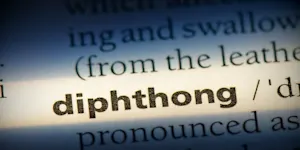What Makes This Word Tick
"Peculate" feels a bit like the bad apple in the basket of words, doesn't it? Wrapped up in legal and financial jargon, this verb takes on the weighty task of conveying theft or embezzlement, especially concerning public or entrusted funds. It's not a word you hear over a friendly cup of coffee unless your friend manages city finances!
If Peculate Were a Person…
If Peculate were a person, it'd likely wear a sharp suit and carry a briefcase filled with intriguing secrets. Someone who's part of the inner circle but whose shifty eyes make you wonder if they're trustworthy. You'd probably find Peculate attending prestigious functions, but you'd guard your wallet.
How This Word Has Changed Over Time
Believe it or not, "peculate" hasn't evolved much since it walked into English, hands in pockets, in the late 16th century. Stemming from the Latin "peculatus," it has long been tied to misappropriation, always about that covert swoop towards other people's money.
Old Sayings and Proverbs That Use Peculate
While "peculate" isn't commonly found in classic idioms, it vibes with the sentiment of "robbing Peter to pay Paul." Both suggest shifting valuables around in convoluted and often unauthorized ways, making a merry dance of deceit.
Surprising Facts About Peculate
One might think peculating is a modern notion, but civilization's oldest texts detail mishandlings of property and trust issues — human nature, rather unchanged. Also intriguing, "peculate" shares roots with "peculiar," tying back to private property — pecus ("cattle") in Latin — when wealth was gauged by livestock.
Out and About With This Word
You'll usually spot "peculate" hanging around the courtroom or in a tense news segment detailing financial scandals. It's one of those words comfortably mingling with legal documents and crime reports, keeping company with terms like "embezzlement" and "fraud."
Pop Culture Moments Where Peculate Was Used
Though "peculate" might not pop up daily in your TV shows, its essence is present in every plot involving financial mischief. Think of classic heist movies or political thrillers — somewhere between scenes, peculation plays its silent role.
The Word in Literature
In literature, "peculate" might find itself nestled in crime novels or courtroom dramas, where characters could flirt with the fine line of morality and legality. It offers a punch when narrating corrupt officials or moral slip-ups.
Moments in History with Peculate
Back in the roaring '20s, peculation was a hot topic during the infamous Teapot Dome scandal in the U.S., where government oil reserves were mishandled. Situations like these are perfectly suited to evoke peculate's weighty history of fiscal misdeeds.
This Word Around the World
Across the globe, peculate's concept resonates — known as "détournement de fonds" in French or "peculato" in Italian, each presenting its own thorny issue of misappropriation amid various public sectors, echoing through international policy discussions.
Where Does It Come From?
"Peculate" traces back to the Latin root "peculatus," derived from "peculium," meaning private property, and explains its sticky association with embezzlement. It’s a word with deep etymological roots in ownership and trust.
How People Misuse This Word
Sometimes mistaken for simpler theft or robbery, peculation specifically involves the misuse of someone else's entrusted funds, a nuance sometimes lost in hurried conversations or casual misinterpretations of legal snags.
Words It’s Often Confused With
Embezzle: Although similar, embezzle more broadly involves misappropriation.
Pilfer: Suggests petty theft, lacking the formal and financial tones of peculation.
Steal: A general term, doesn't specify the trust-breaking nature of peculation.
Additional Synonyms and Antonyms
While embezzle and misappropriate are closely related, antonyms include terms like safeguard and conserve, emphasizing protection rather than misuse.
Want to Try It Out in a Sentence?
"The audit revealed how he managed to peculate funds from the charity, leaving everyone astonished at such betrayal of trust."
















